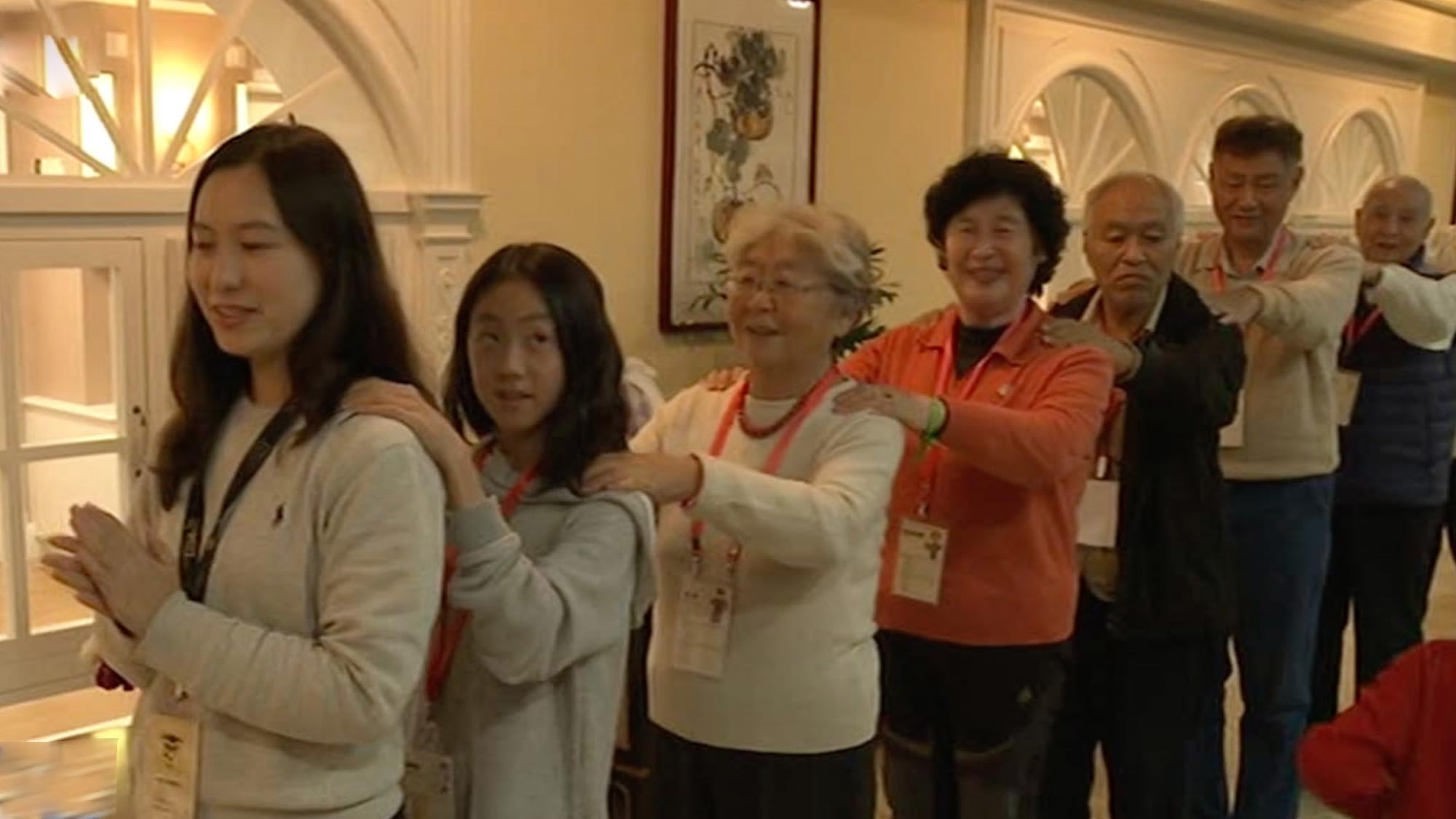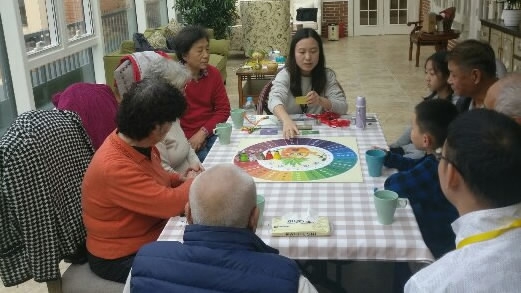
Culture
22:50, 28-Oct-2017
Chongyang Festival: National competition for games aimed at the elderly
By Sun Ye and Gao Boyuan

For China’s first national competition that looks to find original games that are designed especially for people over 60-year-old, prizes are doled out in the week of Chongyang Festival.
One of the biggest winners is a board game that works to better the players’ health.
It takes some luck, quick calculations, and full attention to one's health to win this game designed for a table of at least four.
The rules of the winning game are much like Monopoly as the goal is to get as much (fake) money as possible, and living a healthy lifestyle helps accrue wealth, like knowing when's the best time to drink water... and doing the right exercises.
One of the first players, 70-year-old Fu Meizhen told CGTN that she and her friends were playing board games specially designed for them for the very first time and they fully enjoyed it. She also said that “My goal in life is to stay healthy.”

Games for older people usually need moderators. /CGTN Photo
Games for older people usually need moderators. /CGTN Photo
Coming from the elderly care industry, the inventors of this winning game want senior citizens to get together more, as their research shows that loneliness is bad for health.
Wang Fuqing, designer and head of the Boro Care company said that “The biggest thing we found when doing surveys is that older people really need company, loneliness is the worst thing. That's why we think the best games are for groups, and are competitive, because a little race is what really gets them hooked.”
Besides mahjong and chess, China's 200 million mature citizens don't really have much of a choice when it comes to games such as these.
And Zhou Yanmin, the founder of the national competition, says one of the most important things is to bring the older people joy with new, more tailored games. And to engage more people from the younger generation.
Zhou, a leading researcher in the senior care industry, and professor at the Tsinghua University told CGTN that, “Happiness is the cure for many serious problems, we hope the games can bring this to the seniors.”
She also said, “we hope the design competition can raise awareness for older people's emotional needs, and that the younger generation can engage, interact, and play more with the older generation who they simply don't understand. To understand the condition they're in, that's a responsibility for us all.”

SITEMAP
Copyright © 2018 CGTN. Beijing ICP prepared NO.16065310-3
Copyright © 2018 CGTN. Beijing ICP prepared NO.16065310-3